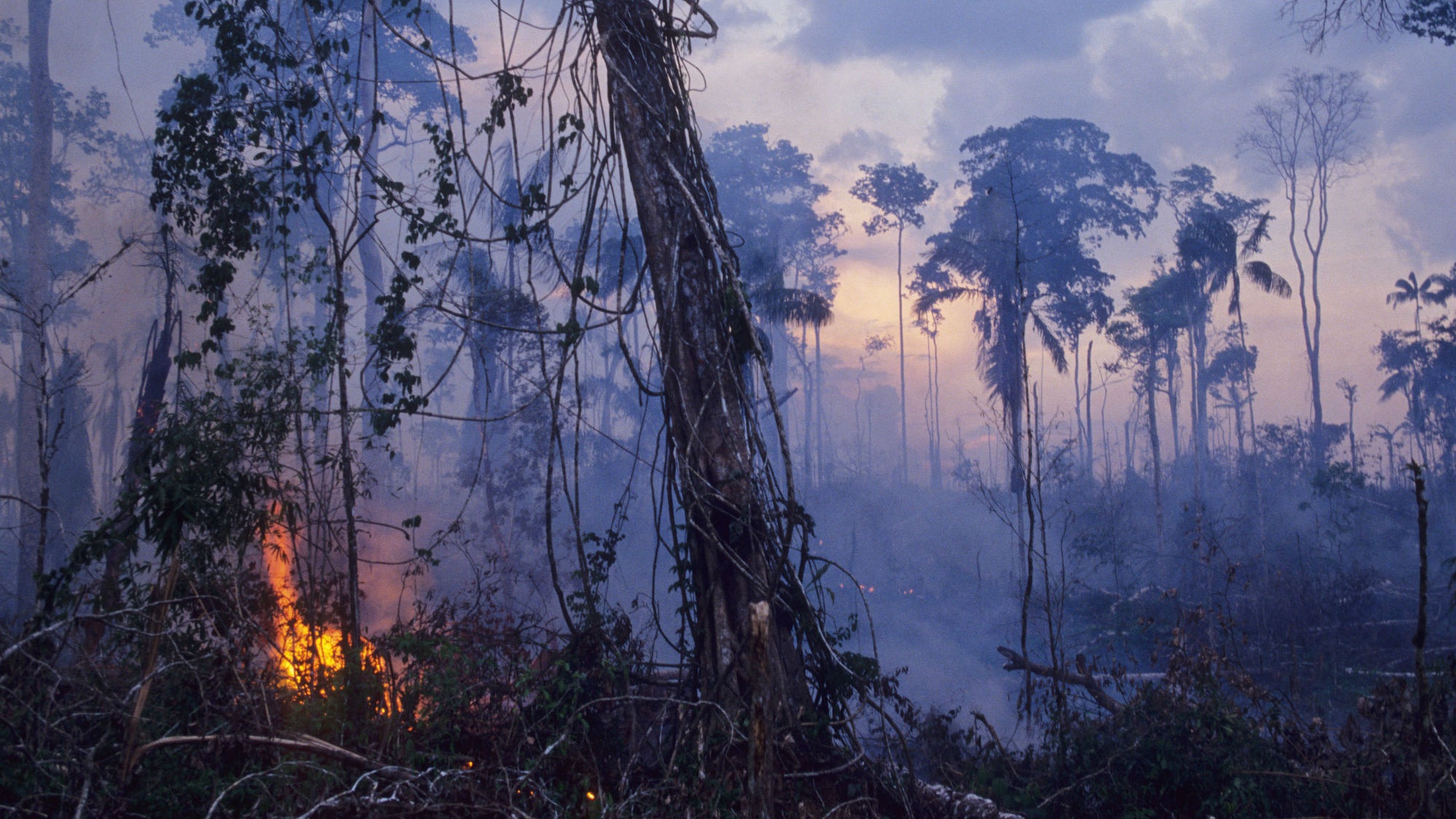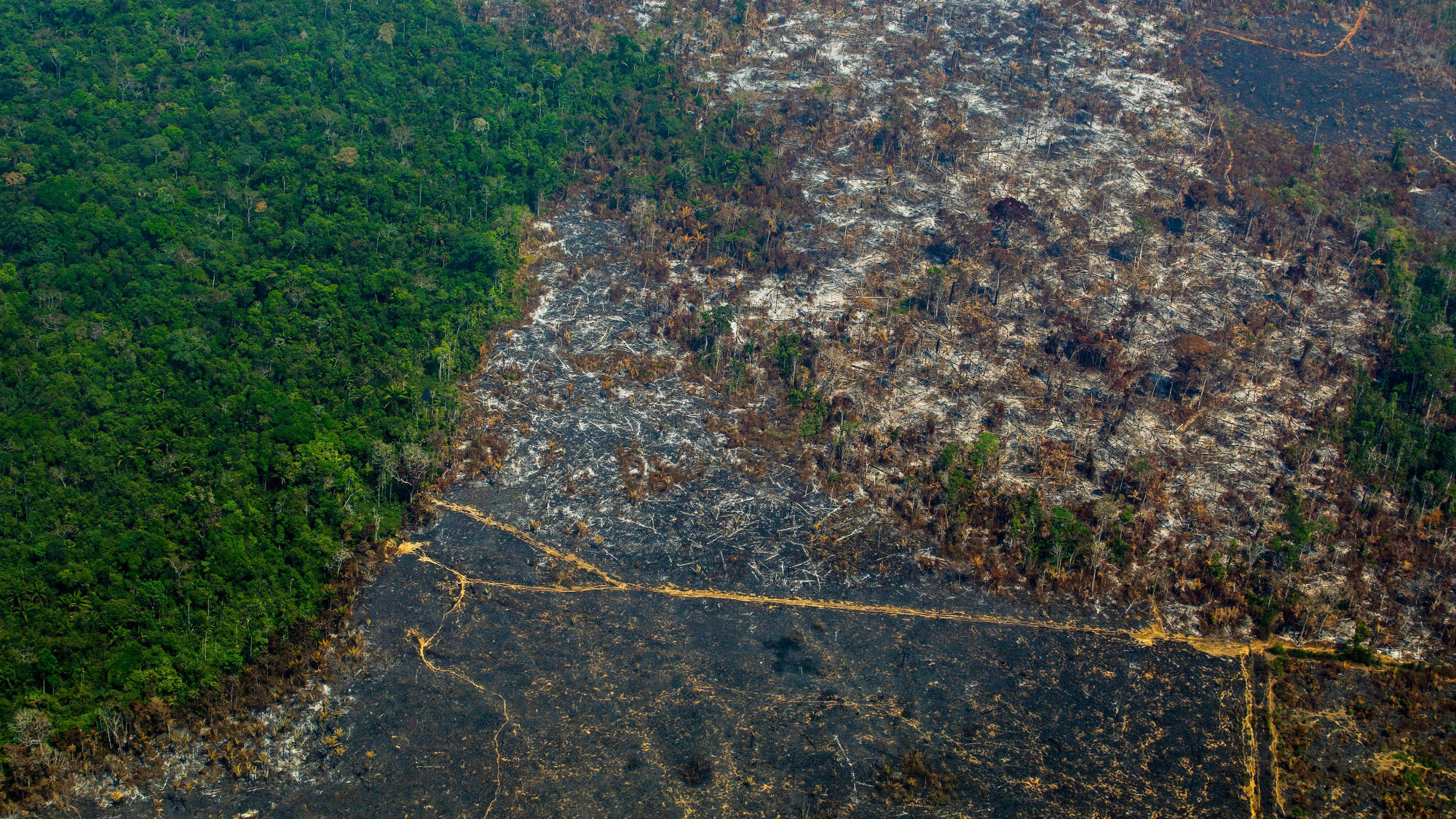The Amazon rainforest is still burning, and the destruction is devastating
Deforestation in Brazil is at its highest rate in more than a decade

Celebrity news, beauty, fashion advice, and fascinating features, delivered straight to your inbox!
You are now subscribed
Your newsletter sign-up was successful
Deforestation in Brazil is at its highest rate in more than a decade
In August, the world unanimously gasped at images showing thousands of fires burning in Brazil, and concern was raised regarding the alarming quantities of carbon being pumped into the world’s atmosphere. Fast forward 12 weeks and the Amazon rainforest is still burning - and new government data has revealed deforestation of the rainforest has hit the highest annual level in a decade.
The results show that deforestation increased nearly 30 percent in 12 months (between August 2018 and through July 2019). It marks the highest level of deforestation in the Brazilian Amazon in a decade, and amounts to 10,000 square kilometres of forest being destroyed between August 2018 and July 2019, according to Brazil's space research agency.
Worryingly, the Amazon rainforest hasn't stopped burning. There were 19,925 fire outbreaks in September and environmental activists are accusing the president, Jair Bolsonaro, who took office in January, of supporting agribusiness, mining and farming to spur economic growth over environmental protections. Most of the fires are agricultural, for example farmers clearing forest for cropland, or illegal land-grabbers destroying trees so they can raise the value of the property they seize.

In July, the rate of deforestation equated to roughly an area the size of Manhattan every day, and in a statement, Greenpeace Brazil’s Amazon campaigner Cristiane Mazzetti, said, 'President Bolsonaro’s anti-environmental agenda favours those who practice environmental crimes, and encourages violence against forest people. His administration is trashing practically all the work that has been done in recent decades to protect the environment and end deforestation.
'High deforestation rates and lack of governance costs lives and positions the country against the fight to tackle climate change. It also damages the economy, as the international market does not want to buy products contaminated with environmental destruction and violence.'
At a time when the world needs billions more trees to absorb carbon and stabilise the climate, the planet is losing its biggest rainforest. It's likely Brazil will face more pressure from other countries to curb deforestation in the coming weeks and months, and it that pressure really can't some soon enough.
Celebrity news, beauty, fashion advice, and fascinating features, delivered straight to your inbox!
Olivia – who rebranded as Liv a few years ago – is a freelance digital writer at Marie Claire UK. She recently swapped guaranteed sunshine and a tax-free salary in Dubai for London’s constant cloud and overpriced public transport. During her time in the Middle East, Olivia worked for international titles including Cosmopolitan, HELLO! and Grazia. She transitioned from celebrity weekly magazine new! in London, where she worked as the publication’s Fitness & Food editor. Unsurprisingly, she likes fitness and food, and also enjoys hoarding beauty products and recycling.